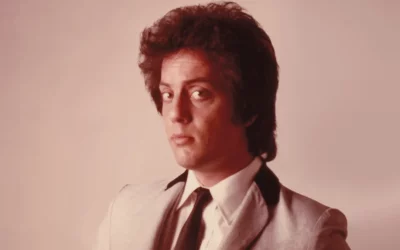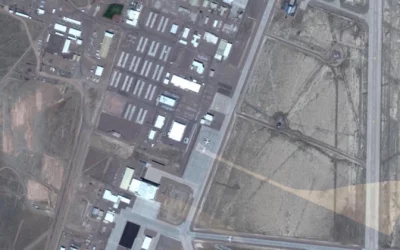Welcome to RADii+
Leaders in OTT and CTV Entertainment
powering content to a world-wide audience
Radii+ is Available on

As Creator Marketing Develops, Advertisers Increase Their Affiliate Efforts
As the influencer industry matures, marketers everywhere are emphasizing control and accountability in their creative marketing strategies. Advertisers starting or growing affiliate creator programs is one sign of that change. Walmart's creator affiliate program has...
VideoAmp And Warner Bros. Discovery Agree To A Three-Year Measurement And Currency Agreement
Warner Bros. Discovery and VideoAmp have signed a three-year currency and measurement agreement. This collaboration develops into a full-stack integration with WBD's technological solutions, building on previous efforts that concentrated on reach and frequency. To...
Ozzy Osbourne ‘Held Out’ For The Last Black Sabbath Performance, According To Tony Iommi
According to Tony Iommi, Ozzy Osbourne "held out" to perform with Black Sabbath one final time. Just two weeks after taking the stage again for the Back To The Beginning event in his hometown of Birmingham, the heavy metal great passed suddenly on Tuesday, 22.07.25,...
Hulk Hogan Died At The Age Of 71
Legendary wrestler Hulk Hogan passed away at the age of 71. Early on Thursday morning, medics were sent to the WWE legend's residence in Clearwater, Florida, with operators reporting that it was related to a "cardiac arrest." Responders are shown on camera frantically...
The Family Of The Man That Died In An MRI Mishap Makes Disturbing Allegations About The Terrible Event
More startling information about the incident has been released by the family of a 61-year-old man who died after being "snatched" inside an MRI scanner. Keith McAllister was merely in the hospital to help his wife, Adrienne Jones-McAllister, when he was pulled into...
Beyond Social Media, Digital Producers Are Expanding. What Does It Signify For Audio And CTV?
The Cannes Lions festival last month made it quite evident that content producers are branching out from social media. They are starting to play a significant role in the whole digital media sector. Brand deals are losing ground as creators diversify their sources of...
Billy Joel Feeling ‘Good’ After Following Diagnosis Of A Neurological Ailment
According to Billy Joel, he is feeling "good" despite having a serious brain ailment. The Piano Man hitmaker said in May that he will be postponing his next tour dates due to normal pressure hydrocephalus (NPH), a condition that causes fluid to accumulate in the brain...
At 76, Ozzy Osbourne Passed Away
According to TMZ, legendary rock vocalist Ozzy Osbourne passed away. According to the Osbourne family's statement to TMZ, Ozzy passed away on Tuesday "surrounded by love." It's unclear what caused the death. The Osbournes release the following statement: "It is with...
Despite Expansion, CTV Is “Not A Perfect Science,” Which Makes Pricing Justification Challenging
Earlier this year, eMarketer forecast that U.S. CTV media budgets would expand by 17% year over year, hitting $33 billion, with the acceleration of ad spend finally overtaking the 7% increase in CTV time. But even as advertisers start to capture the attention of...
Cops At A Traffic Stop Become Viral After Punching A Black Man, Smashing A Window, And Busting His Lip In A Mug Shot
Police in Florida smashed a driver's window and hauled him out of his car after he mouthed off to them during a traffic stop. The entire incident was captured on camera. The man was then hit in the mouth. Body camera footage from William McNeil's violent February...
Megadeth Was Not Invited To Ozzy Osbourne And Black Sabbath’s Last Performance
Where was Megadeth during the Back to the Beginning festival, which included Ozzy Osbourne and Black Sabbath's final concert? It was a huge gathering of heavy metal and rock icons, including Metallica, Ghost and Lamb of God, and YungBlud. As it happens, they were not...
Area 51 Whistleblowers Claim Secret Operation Altered DNA, Killed Others
An 'invisible enemy' is said to have killed some Area 51 veterans, while another has claimed that a top-secret experiment 'permanently altered' his DNA. Area 51, which situated in southern Nevada, is frequently linked to mysterious flying UFOs; some conspiracy...












